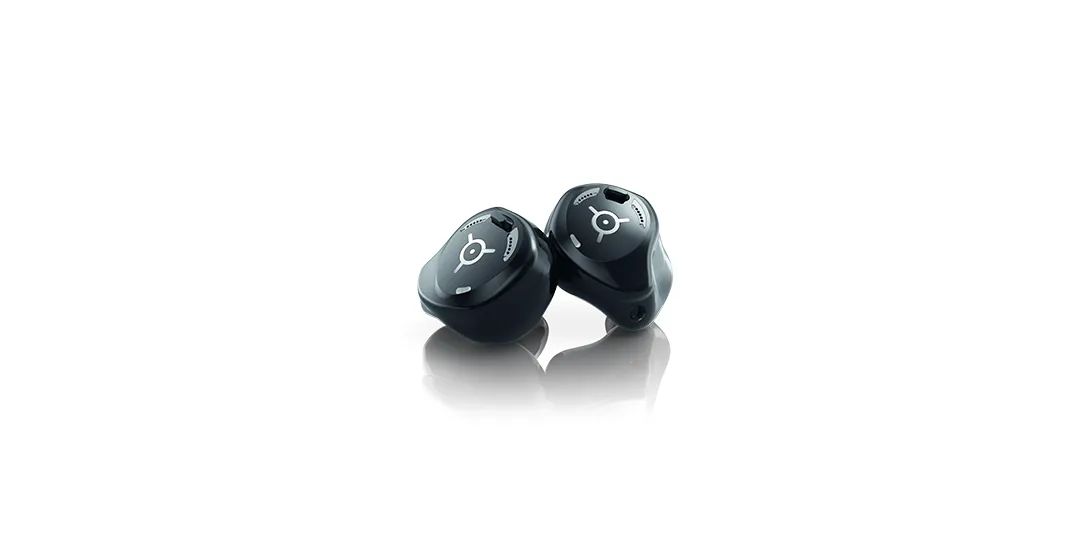Types of tinnitus: Everything you need to know

Types of tinnitus: Everything you need to know
10 min.
Publication Date: March 23, 2022
Article Updated: June 23, 2025
Tinnitus, the experience of persistent sounds like ringing, buzzing, or whooshing in your ears, affects many Canadians and can significantly impact daily life. In fact, according to Statistics Canada, approximately 37% of adult Canadians have experienced tinnitus symptoms at some point in their lives.
Understanding the different types of tinnitus, their causes, and available treatments can help you manage symptoms effectively and improve your overall well-being. Remember, you're not alone—many people successfully find relief with the right information and support.
Note: Our Hearing Care Professionals (HCPs) are here to support your ear health and provide personalized guidance. However, if you're concerned about ear infections or other medical issues affecting your hearing, always consult with your healthcare provider as your first priority.
What is tinnitus?
Tinnitus is the perception of noise or ringing in your ears when no external sound source is present. It can manifest as various sounds, including buzzing, clicking, humming, or a steady ringing, and may vary significantly in volume and pitch. For some, tinnitus is intermittent and manageable, but for others, it can be constant and disruptive, affecting sleep, concentration, emotional health, and overall quality of life. Tinnitus itself isn't a disease, but rather a symptom of underlying conditions or auditory system changes.
Types of tinnitus
Tinnitus is generally categorized into three primary types, each with different characteristics, underlying causes, and treatments:
Subjective tinnitus
Subjective tinnitus is the most common type, where the sounds are only audible to the individual experiencing them. Typically linked to hearing loss or damage within the auditory system, subjective tinnitus can arise from prolonged noise exposure, aging, ear infections, certain medications, or injury.
Objective tinnitus
This rare form of tinnitus can be heard by both the person experiencing it and, in some cases, healthcare professionals during an examination. Usually, objective tinnitus is caused by physical abnormalities, such as blood vessel irregularities, muscle contractions in the ear, or middle ear bone conditions. Medical evaluations and imaging tests often help identify these causes.
Pulsatile tinnitus
Pulsatile tinnitus is characterized by rhythmic sounds that align with your heartbeat. Often linked to changes in blood flow near the ear, high blood pressure, or vascular conditions, pulsatile tinnitus may require medical attention to rule out more serious underlying health issues.
Tinnitus causes and risk factors
Tinnitus can stem from various causes and understanding these can help you manage your risk and take preventative measures. While some causes relate directly to the auditory system, others involve broader health conditions or lifestyle factors:
Prolonged noise exposure: Regularly experiencing loud environments—such as workplaces with loud machinery, concerts, or extended use of headphones—can damage your auditory nerves, increasing your risk of tinnitus.
Age-related hearing loss: Natural aging can lead to hearing loss and tinnitus, as your auditory system gradually declines over time.
Medical conditions: Underlying health issues, such as high blood pressure, cardiovascular disease, diabetes, thyroid disorders, and ear infections, can contribute significantly to tinnitus symptoms.
Ototoxic medications: Certain medications, including specific antibiotics, chemotherapy treatments, and even high-dose aspirin, can cause tinnitus by damaging the auditory system.
Diagnosing tinnitus
Diagnosing tinnitus effectively involves understanding your symptoms and identifying potential underlying causes. At Connect Hearing, our audiologists and HCPs conduct thorough assessments beginning with detailed discussions about your health history and current symptoms. We offer comprehensive hearing evaluations, including audiometric testing and, if necessary, advanced imaging referrals to pinpoint precise causes. By determining your tinnitus type and its contributing factors, we develop tailored treatment strategies designed to provide meaningful relief.
Treatment options for tinnitus
Managing tinnitus effectively depends on accurately identifying its causes and understanding the available treatment options. While tinnitus itself may not have a definitive cure, numerous approaches can significantly reduce symptoms and improve your quality of life. These tinnitus treatment methods range from simple lifestyle adjustments to specialized therapies and devices:
Sound therapy
Sound therapy involves using external sounds to mask tinnitus symptoms, reducing the perception of noise. Options include white noise machines, hearing aids with integrated masking features, or specialized apps that produce calming background sounds.
Cognitive behavioral therapy (CBT)
CBT addresses the emotional and psychological aspects of tinnitus, helping individuals develop coping strategies and manage stress or anxiety related to their symptoms. Many people find significant relief through this therapeutic approach.
Hearing aids
Hearing aids can be highly effective, especially when tinnitus is associated with hearing loss. By amplifying environmental sounds, hearing aids help diminish tinnitus perception, making it less intrusive in daily life.
Medications
Although no medications directly cure tinnitus, certain prescriptions can help manage associated symptoms, such as anxiety or depression, improving overall well-being and making tinnitus easier to cope with.
When to seek professional help
If tinnitus affects your quality of life, causing persistent discomfort, disrupting your sleep, concentration, or emotional health, it's important to seek professional assistance. Additionally, if tinnitus arises suddenly, is accompanied by hearing loss, dizziness, or other concerning symptoms, prompt evaluation is essential. Early professional intervention can lead to effective symptom management and significantly enhance your quality of life.
Protecting your hearing health
Being proactive about your ear health can substantially reduce your risk of tinnitus and related hearing problems. Minimize exposure to loud noises, regularly check the side effects of medications you take, maintain routine health check-ups, and seek medical advice at the onset of symptoms.
At Connect Hearing, our dedicated audiologists and HCPs specialize in comprehensive tinnitus evaluation and management, providing personalized support to help you regain control over your auditory health. If tinnitus is affecting your daily life, please reach out to Connect Hearing for expert advice and personalized care.
Taking action today will help ensure better hearing health and greater comfort tomorrow.



